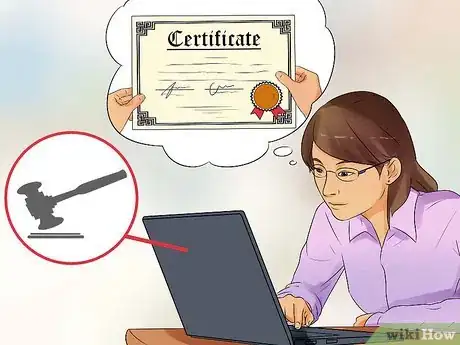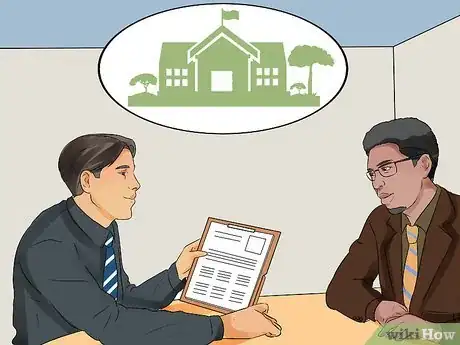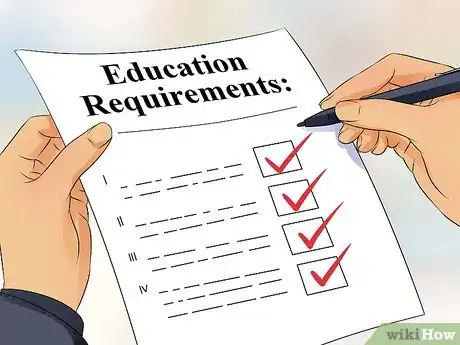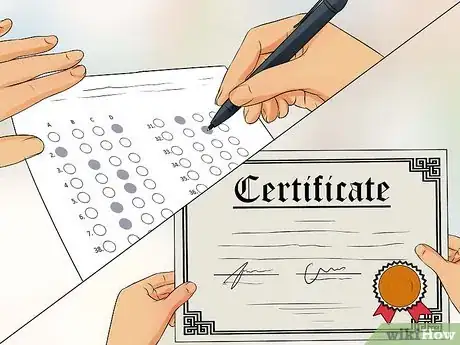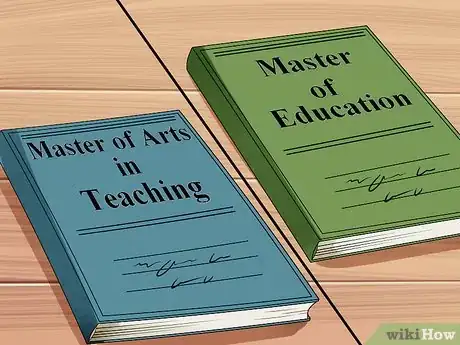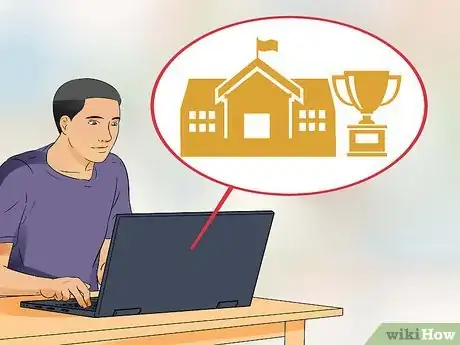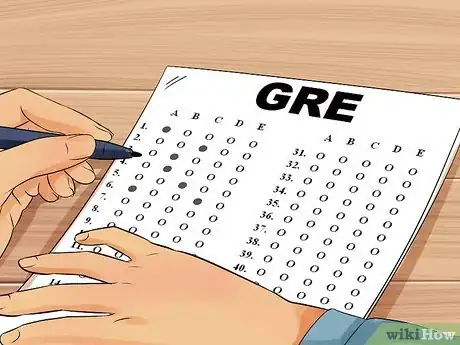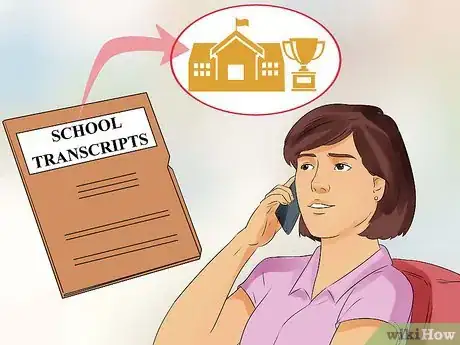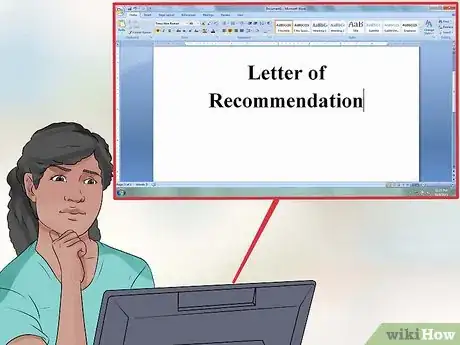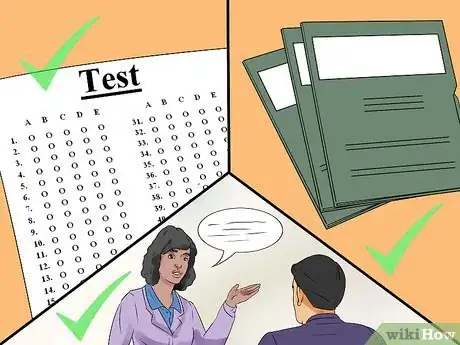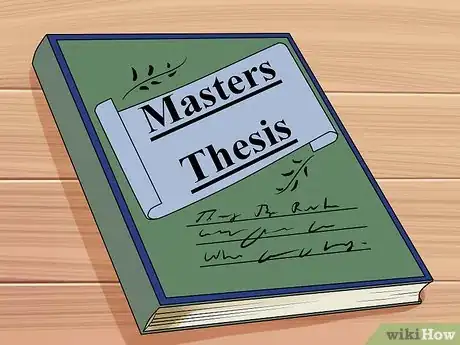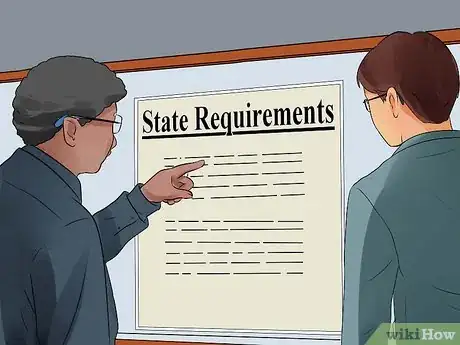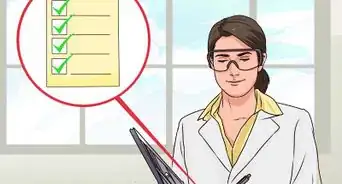This article was co-authored by Felipe Corredor. Felipe is a Senior College Admissions Consultant at American College Counselors with over seven years of experience. He specializes in helping clients from all around the world gain admission into America's top universities through private, one-on-one consulting. He helps guide clients through the entire college admissions process and perfect every aspect of their college applications. Felipe earned a Bachelor's Degree from the University of Chicago and recently received his MBA.
wikiHow marks an article as reader-approved once it receives enough positive feedback. In this case, several readers have written to tell us that this article was helpful to them, earning it our reader-approved status.
This article has been viewed 325,365 times.
Becoming a primary or secondary school teacher usually requires a bachelor's degree in education. Sometimes, however, people decide that they want to become a teacher after they've already completed a bachelor's in another subject. Don't worry- if this is the case, you still have two options for obtaining the necessary certification to become a teacher.
Steps
Getting an Alternative Certification
-
1Investigate the laws in your state. Alternative certification is designed for people who decided to become teacher after completing a degree in a different field. Alternative license programs usually require one or two years of field work and classes in an accredited school before you'll become a certified teacher. Like most educational matters, this is regulated by states, so it varies. To get started, investigate the process in your particular state.[1]
- Click here to find your state.
-
2Apply to a school that offers alternative certification. Alternative certification programs are done through accredited colleges. Finding one and applying is a lot like applying to any other school. You'll have to send transcripts, letters of recommendation, and application forms.[2]
- Click here to find a school in your state.
Advertisement -
3Work under a certified teacher's supervision. While the process for alternative certification varies between states, most will require you to work with a certified teacher. Your duties might include assisting the teacher with grading, lecturing, and any number of activities teachers typically do. This will give you the practical experience necessary deal with your responsibilities as a teacher.[3]
-
4Complete the necessary education requirements. In addition to your field training, alternative certification involves a number of education classes that will give you knowledge on being a teacher. Again, the amount of credits you'll need will vary from state to state, so remember to check out your state laws to find out your particular requirements.[4]
-
5Pass all of the necessary certification tests. After you complete the alternative certification program, you'll usually have to take one or more tests to become fully certified. These will vary from state to state. Whatever particular tests you have to take, make sure to study hard, pass, and then you'll be a certified teacher.[5]
Getting a Master's Degree in Education
-
1Consider which master's degree you would want. To become a teacher, there are two options: Master of Arts in Teaching and Master of Education. Both offer different programs and are geared for slightly different career paths.[6]
- Master of Arts in Teaching focuses on a teacher's performance in the classroom. It offers a lot of hands on experience teaching and working with students. You will also be able to advance your expertise in the particular area you want to focus on.
- Master of Education focuses more on the education system itself. People with Master of Education degrees can and do stay in the classroom for the remainder of their careers, but this degree is also appropriate for people who want to advance in the field. Aspiring principals and administrators would benefit from this degree.
-
2Start researching potential schools. Your first step in getting your master's degree is finding the right school. Many schools offer master's degrees, so you'll have a lot to choose from. What you're looking for in a school will vary depending on what is important to you. You might choose a school based on faculty, location, expense, or any number of reasons. Narrow down what you want out of a school to help narrow down your choices.[7]
- Don't save this for the last minute. Applications are usually due in December or January. Ideally, your investigation will start in the spring, so you have enough time to gather all of the necessary materials.
- Feel free to contact schools and request information or a meeting. They will be happy to talk to potential students.
- Also make sure to check if a school is accredited. If you attend a non-accredited school, you won't be able to get certified to teach after graduating. Click here for a database of accredited school and programs in the US.
- If you're feeling lost, make an appointment with former or current professors. They will be happy to talk with you and make recommendations.
-
3Take the GRE. The GRE is a standardized test for entry into graduate school. Not all schools require this test; you'll find out which ones do during your investigation of potential schools. Depending on your level of aptitude, your prep time can vary from a week to a few months. Again, start early to ensure you have enough time to prepare.[8]
- Read Prepare for the GRE General Test for tips and preparation help.
-
4Request your transcripts to be sent to the schools you're applying to. Whenever you apply to graduate school, you'll have to get your transcripts from every school you attended. Schools most often want transcripts sent directly to them, so make sure you have the correct addresses for every school you're applying to.[9]
- Allow at least two weeks for your transcripts to be printed and sent. The earlier you do this, the better.
-
5Request your letters of recommendation. Almost all graduate programs will require a letter of recommendation from former professors. The general rule is to allow at least two weeks for your professors to write your letters, so let them know as early as possible.[10]
-
6Fill out the rest of the application. Besides the transcripts and letters of recommendation, you'll also need to fill out the application form. These vary from school to school, but usually include personal information, a resume, and a statement of purpose. Be sure to complete all of the necessary forms to finish applying to graduate school.[11]
-
7Complete your coursework. Once you get into a program, you'll need to complete between 15 and 30 credits of coursework in education. This will consist of typical work like tests, presentations, and papers. Complete all of these to get a step closer to your master's degree.[12]
-
8Complete your final project. In addition to your coursework, your master's degree will require some mind of final project. Depending on the program, this can either be a thesis under the direction of a supervisor, an internship, or an exam.[13] Once you complete this final assignment, you'll have your master's degree and will be qualified to be a teacher.
-
9Follow your state's requirements for getting certified. Once you complete your degree, you still need to get qualified to teach. The process varies from state to state, so click here to find out the laws in your state.
References
- ↑ http://www.educationdegree.com/programs/alternative-teacher-certification/
- ↑ http://www.educationdegree.com/programs/alternative-teacher-certification/
- ↑ http://teach.com/how-to-become-a-teacher/teaching-credential
- ↑ http://teach.com/how-to-become-a-teacher/teaching-credential
- ↑ http://teach.com/how-to-become-a-teacher/teaching-credential
- ↑ http://teach.com/how-to-become-a-teacher/teacher-education/master-of-arts-in-teaching-vs-masters-of-education
- ↑ http://www.princetonreview.com/grad-school-advice/application-timeline
- ↑ http://www.princetonreview.com/grad-school-advice/application-timeline
- ↑ http://www.princetonreview.com/grad-school-advice/application-timeline
- ↑ http://www.princetonreview.com/grad-school-advice/application-timeline
- ↑ http://www.princetonreview.com/grad-school-advice/application-timeline
- ↑ http://www.alleducationschools.com/education-careers/article/masters-degree-in-education/
- ↑ http://www.alleducationschools.com/education-careers/article/masters-degree-in-education/
Community Q&A
-
QuestionWhat are the teaching requirements in Delaware?
 DancerdancerCommunity AnswerTo become an elementary teacher in Delaware, you must earn an initial certificate from the state. To qualify, you must have a bachelor's degree and complete a teacher preparation program. You must also pass the Praxis Core Academic skills for Educators and Praxis Subject Assessments Elementary Education tests.
DancerdancerCommunity AnswerTo become an elementary teacher in Delaware, you must earn an initial certificate from the state. To qualify, you must have a bachelor's degree and complete a teacher preparation program. You must also pass the Praxis Core Academic skills for Educators and Praxis Subject Assessments Elementary Education tests.
About This Article
To become a teacher if you already have a 4-year degree, you can get an alternative certification from an accredited college so you don't have to get a bachelor's degree in education. You'll work under a certified teacher’s supervision to gain practical experience, and pass education tests to become certified. Alternatively, you can get a master's degree in teaching or education. After completing your coursework and final project, follow your state's requirements to get certified. For more tips, such as how to fill out the relevant application forms, read on!
